Why 'Fantastic Beasts' Is So Chillingly Relevant Right Now
The film is a stunning allegory for the most pressing issues of our time, and *exactly* what we need post-election.
You know how the Harry Potter movies got better, and better, and better—growing with their audience in both sophistication and magical thrills as each year passed? Basically, we started from the bottom and now we're here—here being Fantastic Beasts and Where to Find Them, which comes out of the gate strong and proceeds to crush it for a full two hours and 13 minutes. It's hardly a shock given the script was written by J.K. Rowling herself, who's gifting the world five movies total, all of which will be penned by her expert hand.
Because Harry Potter comparisons will be inevitable, let's get them over with. Fantastic Beasts 100 percent lives up to the hype, exceeds expectations, will give you magical feels, and—bonus—has the advantage of a recent Oscar winner being at its helm. Viewers don't typically expect powerhouse performances from adventure movies, but it's nice nonetheless, and in this case lends an element of realism to an otherwise fantastical world. Eddie Redmayne is charming as Newt Scamander, a Hogwarts alum who arrives in New York with a suitcase full of misunderstood beasts (#normal), only to end up wanted as a result of accidentally unleashing them upon the city. Oh, and meanwhile there's an evil wizard trying to kill everyone's buzz/kill everyone in general. The film is your typical adventure—boy meets girl, girl dislikes boy, boy eventually wins girl over, good triumphs over evil, etc, but it's also so much more.
Themes of outsiderdom, exclusion and otherness are impossible to ignore, and become allegories for an array of contemporary social issues: gay rights, the Syrian refugee crisis, environmental protection—even racial tension. Given our own recent election results, the magical government in 1920s New York rings especially disturbing—wizards aren't allowed to marry let alone speak to muggles, magical beasts are outlawed simply for being misunderstood, and those who are different are feared and reviled.
In J.K. Rowling's world, the glass ceiling was shattered in 1926.
Anyone who follows J.K. Rowling on Twitter knows that she's a champion of social justice, and her influence on the film is unmissable. Fantastic Beasts' main female protagonist Porpentina Goldstein is career-focused and probably just fine without a boyfriend (though yes, we're shipping her and Newt); her sister Queenie subverts every glam-girl stereotype by falling for a seemingly basic muggle; and the magical government is presided over by not just a woman, but a woman of color. Because in J.K. Rowling's world, the glass ceiling was shattered in 1926.
All of the above is an A+ sign for future films in the Fantastic Beasts franchise, especially since Dumbledore will more than likely make an appearance, and will (hopefully) be written as gay—at least based off the following pretty cut-and-dry comment J.K. Rowling made in 2007:
"Dumbledore is gay."
Even in 2016, we're talking about representation that normally just doesn't make its way into films with such massive influence and reach. Yet what's most impressive is that these socially relevant themes aren't heavy-handed. They're wrapped up in the cozy magical blanket that makes J.K. Rowling's wizarding world the definition of escapism to so many. It's hard to think of a criticism to bestow on Fantastic Beasts (though some audience members might take issue with Johnny Depp's casting), but since this is a review, and one should look for flaws, let's go ahead and list some random complaints.
Stay In The Know
Get exclusive access to fashion and beauty trends, hot-off-the-press celebrity news, and more.
Fantastic Beasts and Where to Find Them hits theaters on November 18.
Follow Marie Claire on Facebook for the latest celeb news, beauty tips, fascinating reads, livestream video, and more.
Mehera Bonner is a celebrity and entertainment news writer who enjoys Bravo and Antiques Roadshow with equal enthusiasm. She was previously entertainment editor at Marie Claire and has covered pop culture for over a decade.
-
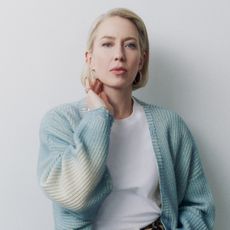 The Wild Ride of Carrie Coon
The Wild Ride of Carrie CoonLaurie's deep-set insecurities come to a head in episode 7 of 'The White Lotus,' allowing the actress to turn a "dark night of the soul" into an illuminating time.
By Jessica Goodman Published
-
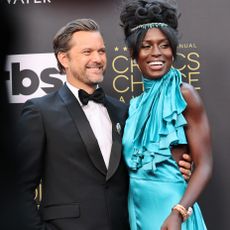 Joshua Jackson Won't Let His Daughter Watch 'Dawson's Creek'
Joshua Jackson Won't Let His Daughter Watch 'Dawson's Creek'"She's going to get all sorts of ideas."
By Amy Mackelden Published
-
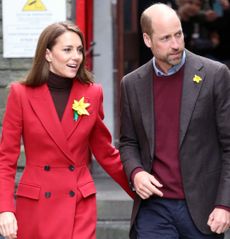 Why Kate and William Will Be Making More Joint Appearances
Why Kate and William Will Be Making More Joint AppearancesA royal expert weighed in on their plans, calling them "the world's most glamorous royal couple."
By Amy Mackelden Published
-
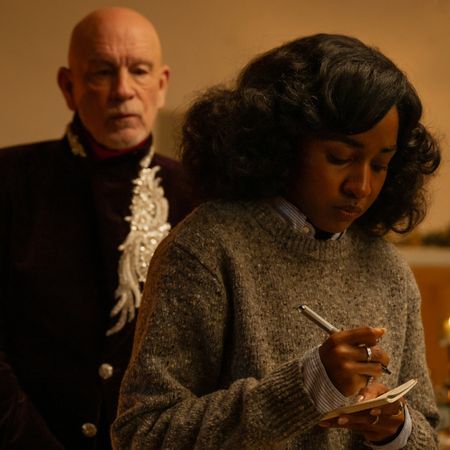 In 'Opus,' Cult Leaders and Pop Stars Are One in the Same
In 'Opus,' Cult Leaders and Pop Stars Are One in the SameThe A24 film's costume and production designers open up about crafting fictional pop icon Moretti’s style and mysterious estate.
By Sadie Bell Published
-
 'On Becoming a Guinea Fowl' Is a Revolutionary Call to Speak Up Against Female Abuse
'On Becoming a Guinea Fowl' Is a Revolutionary Call to Speak Up Against Female AbuseAfter showing how a culture of silence around abuse can devastate entire generations, the arresting A24 film holds a mirror up to the audience and asks, \201cWhat happens if we scream?\201d
By Quinci LeGardye Published
-
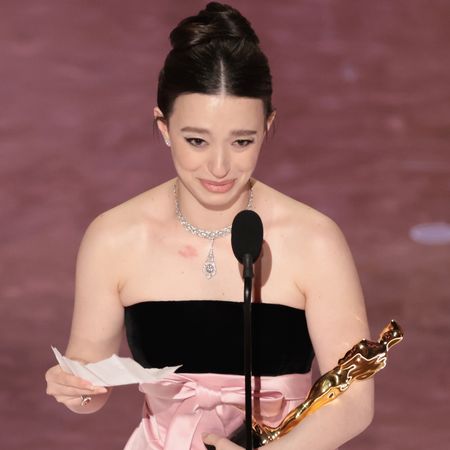 'Anora' Star Mikey Madison Takes Home the Best Actress Award at the 2025 Oscars in a Surprise Win
'Anora' Star Mikey Madison Takes Home the Best Actress Award at the 2025 Oscars in a Surprise Win"I will continue to support and be an ally."
By Quinci LeGardye Published
-
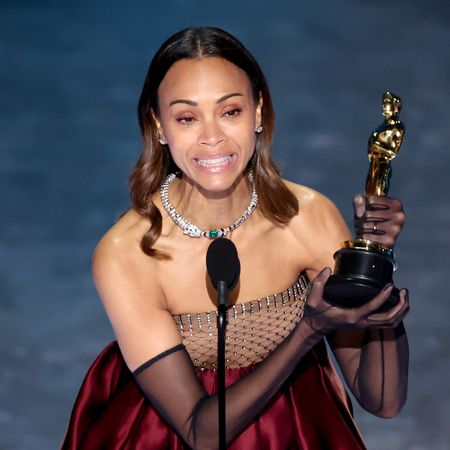 Zoe Saldaña Becomes the First American of Dominican Origin to Win an Oscar
Zoe Saldaña Becomes the First American of Dominican Origin to Win an Oscar"I am the first American of Dominican origin to accept an Academy Award and I know I will not be the last."
By Quinci LeGardye Published
-
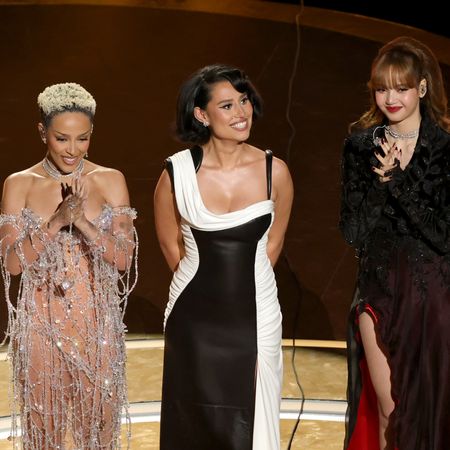 LISA, Doja Cat, and Raye Perform a Glamorous 'James Bond' Tribute at the 2025 Oscars
LISA, Doja Cat, and Raye Perform a Glamorous 'James Bond' Tribute at the 2025 OscarsThe Academy Awards are for the pop girls, actually.
By Quinci LeGardye Published
-
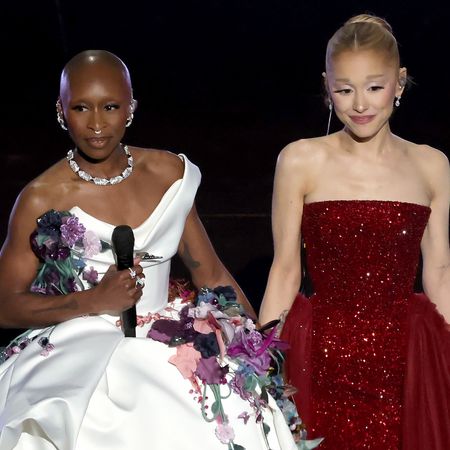 Ariana Grande and Cynthia Erivo Open the 2025 Oscars With a Showstopping 'Wicked' Performance
Ariana Grande and Cynthia Erivo Open the 2025 Oscars With a Showstopping 'Wicked' PerformanceThe awards show began with a medley of songs inspired by the Best Picture-nominated film and adaptations of 'The Wizard of Oz.'
By Quinci LeGardye Published
-
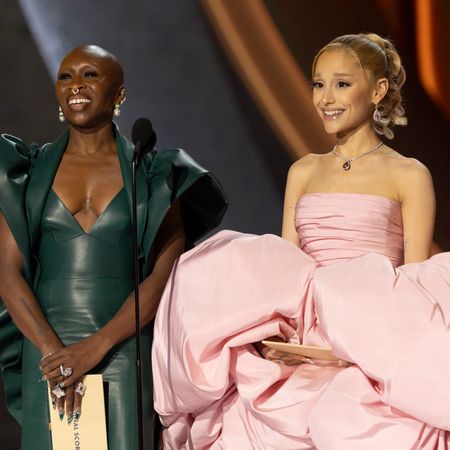 Everything to Know About the 2025 Oscars, From How to Watch to the Nominations
Everything to Know About the 2025 Oscars, From How to Watch to the NominationsIt's bound to be an unpredictable awards show.
By Quinci LeGardye Last updated
-
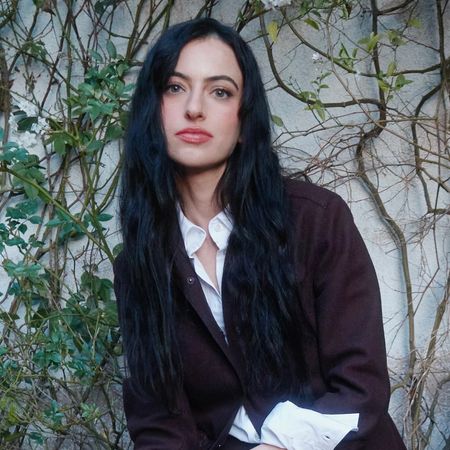 Cazzie David Spent Five Years Fighting to Make an "Anti-Rom-Com" About Emotional Abuse
Cazzie David Spent Five Years Fighting to Make an "Anti-Rom-Com" About Emotional AbuseThe writer/actress opens up about how she found catharsis after a breakup by making 'I Love You Forever.'
By Sadie Bell Published
![Fantastic Beasts and Where to Find Them - Comic-Con Trailer [HD] - YouTube](https://img.youtube.com/vi/YdgQj7xcDJo/maxresdefault.jpg)